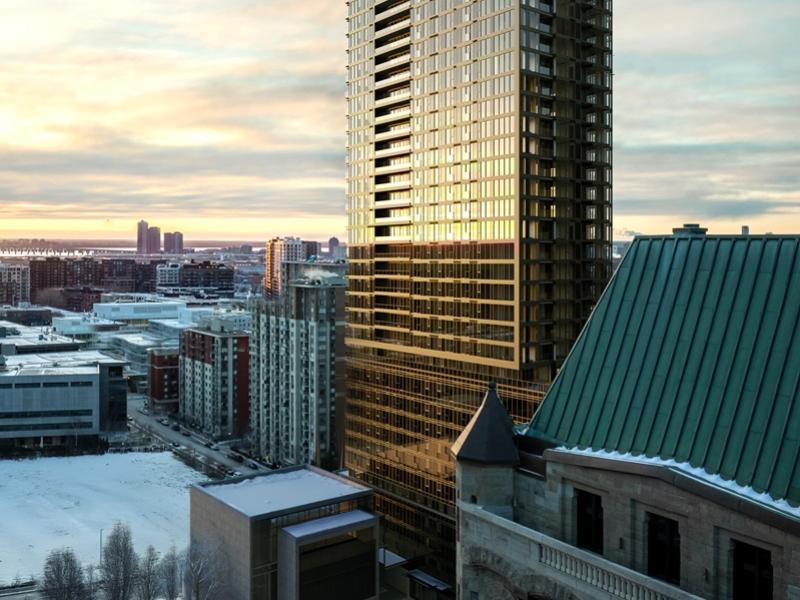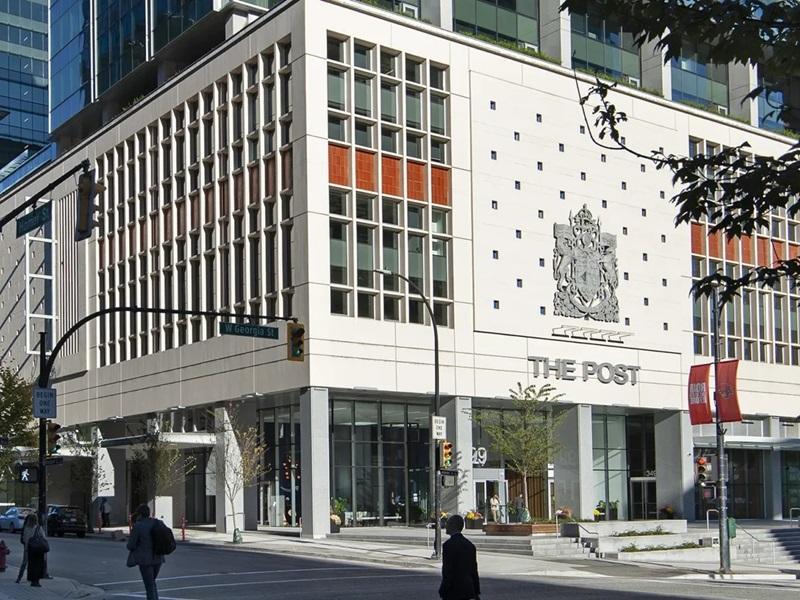
A burst of hotel transaction and development activity in Canada seems to indicate the sector has returned to pre-pandemic norms, says Curtis Gallagher, principal, Canadian hospitality lead at Avison Young.
Given several recent hotel deals, “we’re at the level of volume that we would anticipate under normal circumstances and that's a good sign.”
He notes last month alone saw several significant resort transactions across the country: among them, Oxford Properties Group and an institutional capital partner acquired The Rimrock Resort Hotel on Sulphur Mountain in Banff National Park for $170 million.
Meanwhile, InnVest Hotels purchased the historic Algonquin resort in Saint Andrews, N.B., adding to its Royal Canadian Lodge and Charltons Banff – both in the Alberta resort town – acquisitions from last year.
Gallagher says there are a variety of drivers behind the resort sales. For example, Oxford already owns the Fairmont Banff Springs, “so there's sort of an economies of scale” strategy in place. “It’s a market dominance play there for them.”
As for InnVest’s acquisition of the Algonquin, “I think that they saw the opportunity with the performance of resorts through COVID.
"They didn't own a lot of them and they felt ‘This is a nice diversity play for us to create some more resort assets within the company,’ ” he says, “so it makes a lot of sense.”
Hotel acquisitions and developments
It’s not just resorts that are seeing action, Gallagher notes.
During the winter, Groupe Mach invested about $80 million to purchase the 357-room InterContinental Montreal Hotel in Old Montreal. Groupe Mach president Vincent Chiara told RENX at the time “hopefully this is the beginning of a new venture in doing more hotels.”
In Vancouver, Marcon has announced plans to develop a 32-storey, 578-room hotel in downtown Vancouver at 516-534 W. Pender St. and 509 Richard St.
It would include about 20,400 square feet of commercial space and 44,000 square feet for office use.
The last large-scale new hotel opening in downtown Vancouver was in 2017.
Victoria is also getting a new hotel, its first in the downtown in over a decade, as Chard prepares to build a 139-room Hyatt Centric.
Gallagher says that prior to the pandemic, Marcon planned a residential and retail development at the site, “so that's a bit of a commentary on the residential but also other potential uses, with the office market being in a state of flux.”
In Ottawa in the past few weeks, two new hotels have been proposed. Local firm Troms Holdings plans an 88-room Holiday Inn at the city's airport, while a numbered company plans a 61-unit project in the east-end community of Orleans.
In general, the Canadian hotel industry is performing well, with room rates far surpassing pre-COVID rates, he says.
Strong occupancy and REVPAR numbers

According to data provided to RENX by global hospitality data and analytics company STR, hotel occupancy in Canada was at 60.9 per cent for 2023 as of the end of May, slightly higher than the 59.9 per cent for the same period in 2019, prior to the pandemic.
Average daily rate (ADR) for the year to date (as of end of May) was $180.39 versus $153.63, and revenue per available room (RevPAR) was $109.79 vs. $92.05.
Among major cities, Vancouver tops the scales in ADR ($224.32 so far this year vs. $190.24 during the same period in 2019, a 17.9 per cent increase) and REVPAR ($170.06 vs. $142.50, a 19.3 per cent increase).
Edmonton has the lowest ADR ($137.27 vs. $126.24 in 2019) and REVPAR ($74.74 vs. $68.86) of major cities.
Resorts are doing well as are hotels in major cities and those in secondary or tertiary markets where there are strong needs for blue-collar workers, he says.
Remote work fuels "long weekend" travel
While there was pent-up demand for travel because of COVID-19, “we don't see that pace continuing,” Gallagher says. Rather, he sees the level of leisure travel maintaining because many professionals continue to work remotely.
Those who do so have the opportunity to take long weekends from Friday to Monday, travel to resorts but still get their work done and return to the office from Tuesday to Thursday.
“If that changes and companies start to force employees back because they have the leverage, then that might shift a bit, but we don't see that happening in the near term.”
Given work from home and corporate reductions in expenses, business travel has yet to come close to pre-COVID levels, Gallagher says, while international travel continues to lag.
“It's yet to be determined what level of business travel is the new normal,” he says. “With leisure travel volumes probably plateauing, the upside opportunity will be the business travel recovery and international travel.”
Hotel staffing a concern
Staffing at hotels remains a challenge, Gallagher adds, but the good news is that much of the revenue growth is coming through rate increases.
The labour problems really come to the fore when occupancy increases “which means there's more bodies in your hotel and you need more bodies to service them.”
Gallagher notes hotel financing remains a challenge because of high interest rates and a general pullback of lenders participating in real estate.
Still, credit unions have returned to provide support to secondary and tertiary markets. And he says lenders like Canadian Western Bank, Roynat and BDC that only financed existing clients during COVID are now taking on new clients.
The key thing to keep an eye on for the rest of this year and next year is hotel refinancings as five-year deals mature in an environment of significantly higher interest rates than prior to the pandemic.
It remains to be seen what effect this will have on driving transactions, he says.










